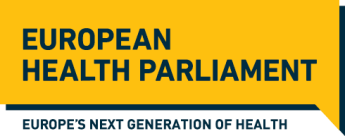February, 24, 2016
POLITICO – Future proof health care: time to think outside the box
Europe’s health care systems are the envy of the world, delivering high levels of care at relatively low cost. But a group of 55 young talented innovators gathered at the European Health Parliament plenary last week, were told that in order for that quality of care to remain the same, everything has to change.
We do not have a health care system in Europe, but a disease-care system. Vivek Muthu, chairman of health care at The Economist Intelligence Unit Health care systems within the European Union are developed along national lines, and vary widely in their approach. While the world becomes more digital and interconnected, many health care systems are still using decades-old top-down approaches. The initiative, which was held in the European Parliament, is supported by Johnson & Johnson, EU40, POLITICO, Google and College of Europe.
“The most important thing is not to try to fix the broken systems, but to think out of the box and come up with new ideas,” Philippe de Backer, a Belgian MEP, told delegates at the summit. New ideas should move away from the national models in which these systems developed and toward an EU approach, he said: “There is a lot to do at EU level. – focus change by using European approaches to health technology assessment to deliver health care better across the EU.”
“We do not have a health care system in Europe, but a disease-care system,” said Vivek Muthu, chairman of health care at The Economist Intelligence Unit. Spiraling costs and inefficient structures mean that if systems don’t change in the near future, Europe’s health care systems could collapse under their own weight, he warned.
What is needed is a bold EU strategy for stimulating an ecosystem to boost research and development, for example, in new antibiotics. Adrian Thomas, vice-president of global market access and public health at Johnson & Johnson
Adrian Thomas, vice-president of global market access and public health at Johnson & Johnson, agreed that a new approach would future-proof European health care. “What is needed is a bold EU strategy for stimulating an ecosystem to boost research and development, for example in new antibiotics”, he said.
So where will the innovation to ensure this sustainability come from? Tapani Piha, head of the Cross-Border Health care and eHealth Unit, who previously worked on health technology assessment at the European Commission, stressed that good ideas are out there in each EU country, and that combining them could yield significant results. “Solutions and tools to improve health care systems are there, we just need to combine them creatively,” he said. “Member states alone cannot take the challenge. We need Europe, we need projects like the Health Parliament to bring new ideas to the table and to work to implement them,” he added.
Zeger Vercouteren, vice-president of government affairs and policy EMEA at Johnson & Johnson said that his company’s history was “a story of continuous innovation and invention”. He added: “The European Health Parliament project represents a unique opportunity to work with all our stakeholders toward a more innovative health care in Europe.”
The 55 people involved in the project will meet again in April and June before they finalize their book of recommendations, broken into five areas: digital skills; prevention; antimicrobial resistance; and the health challenges posed by climate change and migration.
Article published in Politico, 2/24/16





